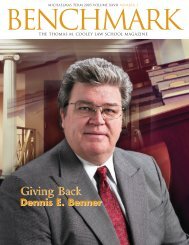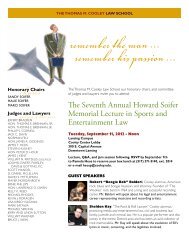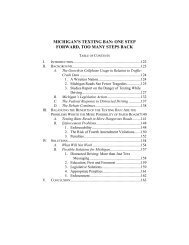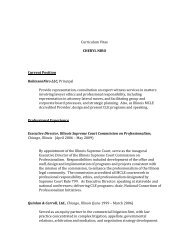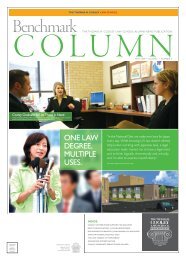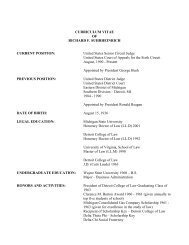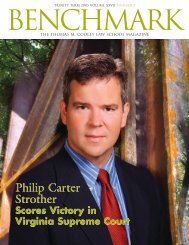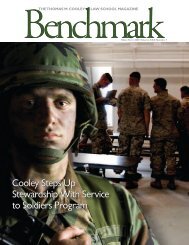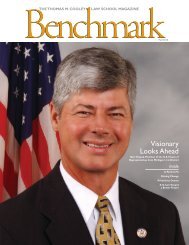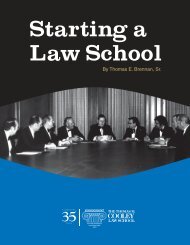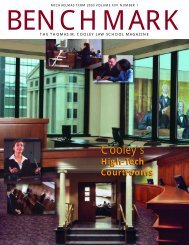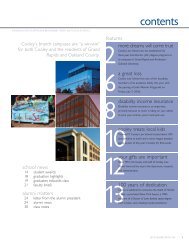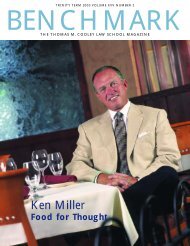Beyond The Model Rules - Thomas M. Cooley Law School
Beyond The Model Rules - Thomas M. Cooley Law School
Beyond The Model Rules - Thomas M. Cooley Law School
Create successful ePaper yourself
Turn your PDF publications into a flip-book with our unique Google optimized e-Paper software.
606 THOMAS M. COOLEY LAW REVIEW [Vol. 26:3these women and men. <strong>The</strong> difficulty lies in finding a role model whosedevelopment of practical wisdom can be traced and documented throughouttheir career and whose career has relevance for today’s lawyer. Further,the challenge is choosing an individual with a track record of not onlymaking ethical decisions but inspirational decisions. And, above all else,this individual must be relatable. In essence, the best role model should bea legal everyman who, nonetheless, goes beyond the profession’s ethicalmilieu. A first instinct is to choose a woman or man who might appear onthe cover of <strong>The</strong> American <strong>Law</strong>yer, a president of the ABA, or, perhaps, aU. S. Supreme Court Justice who had a private practice before a welltoutedjudicial career. This Article focuses on someone much different.While there are many examples of ethical lawyers past and present, fewmeet Aristotle’s requirements as well as Abraham Lincoln.V. LINCOLN AS A ROLE MODEL<strong>The</strong> “[l]aw . . . is a ‘compromise between moral ideas and practicalpossibilities.’” 86 This tension, between absolute moral principles and therelativity of situations, strongly intuited by Aristotle, 87 was a dichotomypersonified by Abraham Lincoln. Throughout his life, Lincoln wasthoroughly practical. Lincoln’s legal practice was not driven by advocacyfor the common man, as some have argued, or for big business, as othershave claimed. 88 Lincoln defended the railroads, but he also fought for86. Deborah L. Rhode, Ethics in Practice 1 (Stanford Pub. <strong>Law</strong> and Legal<strong>The</strong>ory Working Paper Series, Working Paper No. 2, 1999) (quoting NIEBUHR &LOVIN, supra note 83, at 302).87. See Johnston, supra note 80. Referring to Aristotle’s Nicomachean Ethics,Johnston says:“[A] mean defined by a rational principle, such as a man of practicalwisdom would use to determine it.” This seems to be saying that ourbenchmark for understanding the mean should be a role model, aman of practical wisdom, someone recognized for his moral quality.As we shall see, this is an important principle (that our moralunderstanding must use role models), but at this stage it still leavesopen what a person has to do to display practical wisdom. We mightnote, in passing, what Aristotle does not do here: he does not offerany sense that there is a theoretical route to understanding thedoctrine of the mean. Whatever we are to make of this central tenetof his moral teaching, it is something practical, something acquiredin the world of experience and daily living. It is not something wecan pick up by private study.Id. (internal citations and quotations omitted).88. See DIRCK, supra note 2, at 159-60.



